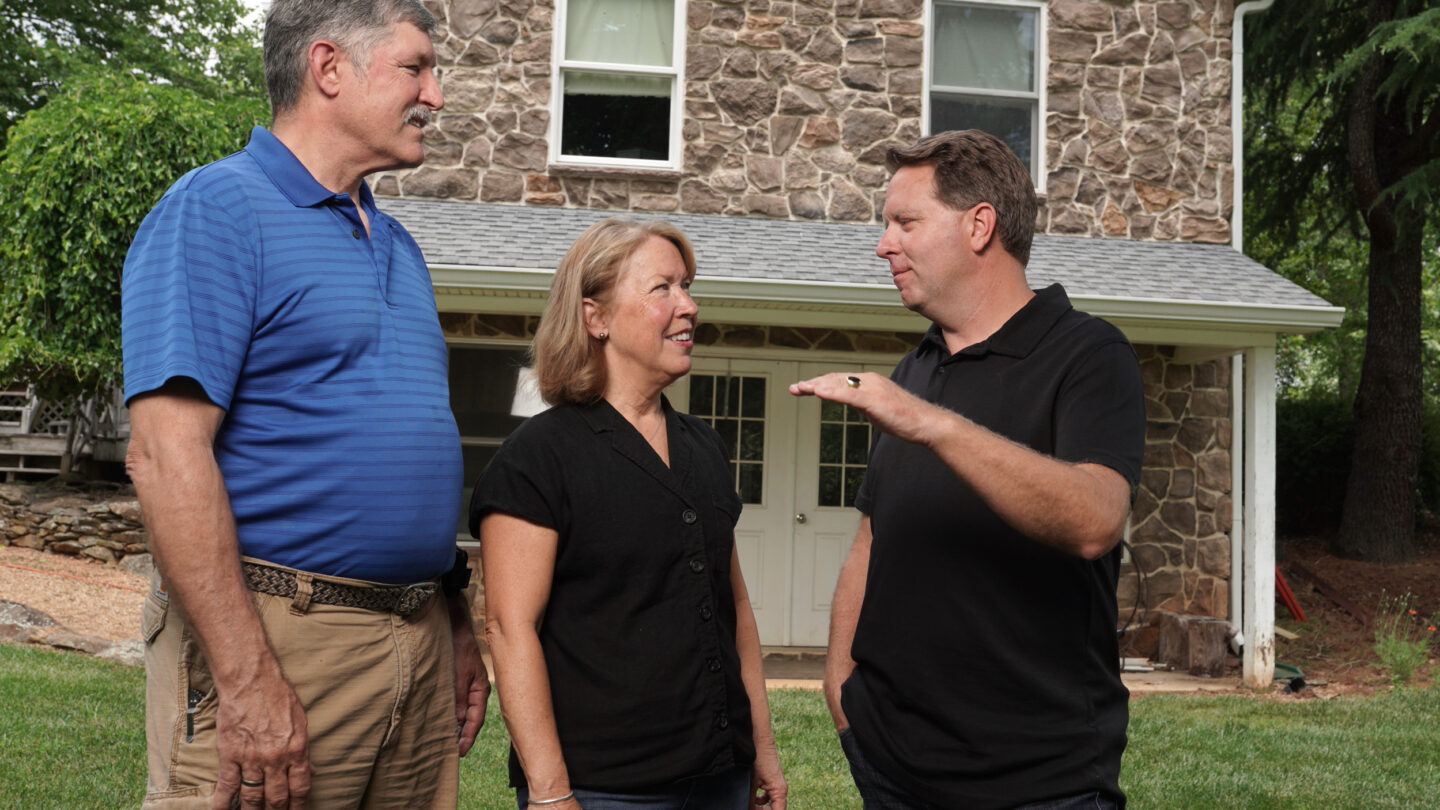New Year’s resolutions can be daunting and discouraging if not achieved. So how do you make and keep a New Year’s resolution that’s not overwhelming? Matt Paxton, host of the Emmy-nominated PBS series “Legacy List,” has some ideas.
The show’s fourth season is out now on PBS, and Paxton joined “City Lights” host Lois Reitzes via Zoom to explain how “Legacy List” helps families navigate the practical and emotional aspects of downsizing.
Interview highlights:
How Matt Paxton unwittingly became a decluttering expert:
“The truth is, I was a 24-year-old kid, and my dad, my stepdad, and both my grandfathers, they all passed away in one year, and I was stuck cleaning up their houses,” Paxton recounted. “My grandfather had said to me… “If you hate doing a job, you should do it for a job, because it means other people will pay you to do it,” and he was right. Here I am, almost 25 years later, I’m still cleaning out people’s houses from the lessons that I learned cleaning out their houses that first year.”
“I was really in the trenches with the most extreme clutter situations in the world… I was a kid, I was just trying to make money, and no one wanted to do those messy houses,” said Paxton. “I was cleaning hoarded houses every day for five years before I got on TV. But when your clients are at that low of a point… what they’re going through is really challenging, and something bad has happened to them… and this is like the best they can make of their life. And so what I really tell people is that first ten years, I just learned to be compassionate…when you’re in an extreme hoarding situation, compassion and humor are the two most important tools.”
The key to breaking patterns of hoarding:
“I have to listen. I have to listen really intently…,” said Paxton. “It’s all about just hearing the stories, because the reason we hold onto items…is because of the people and the emotions attached to those items. You don’t actually care about the plastic; you don’t actually care about the wood. You care about the man or woman that created that, that crafted that, that gave that to you for a special reason.”
“It’s all of those stories that make that item important and difficult to let go of. My method over, really, the last ten years has been to really give space for those stories. And I just listen, and I will ask people all the time now, ‘Hey, what is your ‘legacy list?’…What it really is, is a list of the first five or six items in the house that mean the most to you, and they tell your family’s story.” He later added, “I promise you, at the end of the day, if you’ve told all the stories, you’ll find it easier to let go of the items, and more importantly, you’ll find out that people in your family actually want those items.”
Uncovering astonishing relics of history in real homes:
“We were in Birmingham, Alabama, and as many people know here in the South, there was a very significant event in 1963 at the 16th Street Baptist Church, and it’s where four young girls, four young Black women, were murdered… one of the girls (was) named Denise McNair. And we were cleaning Denise McNair’s parents’ house,” recounted Paxton. “They had 50 years of real history in their home, and they needed help going through it… When you’re in a sacred space, you actually know it, and there’s only a few times in life when you get that opportunity.”
He continued, “We knew there were telegrams from the Queen of England. We knew there were telegrams from Martin Luther King and his wife… all these important people. And we found underneath a hat box…a plastic bag. We start to open it up, and we see some dirty white gloves, almost as if they’re covered in soot. And we realize they are. And we realize they were her mother’s gloves. The day that Denise died, her mother went to church and started digging through the rubble to find her, and then wrapped in all of these gloves, we found a Bible with blood on it, and it said ‘Denise’ in Crayola marker. No one knew it was in the house.”
The newest season of “Legacy List” is on view now on PBS, available to stream at https://www.pbs.org/show/legacy-list/









